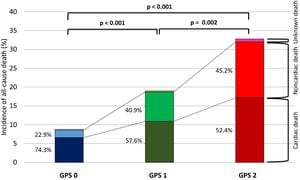On February 19, 2025, TBS's popular variety show, "Water Festival's Downtown," found itself facing backlash after airing content using actual school names linked to sensitive subjects such as bullying. The broadcast elicited significant concerns from educators, parents, and the wider community, leading to a formal apology from the network.
During the controversial episode, the show featured what it described as a "long-term prank" on comedian Hyoroku. This segment aimed to test his character and personality traits through various humorous situations but included the mention of real schools within the storyline. After the airing, TBS released a statement addressing the concerns raised by the schools involved.
TBS clarified its intentions, stating, "The content we broadcast was entirely fictional and not related to any actual elementary school or students." Despite their insistence on the fictional nature of the scenarios, complaints emphasized the show's failure to clearly distinguish between reality and fiction, raising fears of fostering misunderstandings and prejudices.
Following the episode's airing, representatives from one of the actual schools voiced their concerns over the ambiguity of the messages relayed to viewers. They articulated the potential for confusion stemming from the show's portrayal of bullying alongside real-world references. TBS acknowledged these concerns, noting, "We received comments from the actual schools stating, 'The distinction between reality and fiction is unclear, which could lead to misunderstandings and prejudice.'" Such sentiments reflect the hesitance with which audiences now engage with media representations of social issues, especially those as sensitive as bullying.
Hyoroku's segment featured various exaggerations, including pranks where he was confronted with realistic bullying narratives surrounding his fictional nephew—a narrative meant to amuse audiences but inadvertently provoking outrage among those who felt it minimized the seriousness of actual bullying experiences.
The incident has sparked dialogues around media responsibility, particularly when exploring themes as serious as bullying, mental health, and social acceptance. Critics suggest the show should have been more cautious about employing real names tied to such topics, recognizing they could evoke real-world consequences for the communities represented.
Following their public apology, TBS assured viewers of their commitment to responsible broadcasting. The network recognized the impact of their choices and the necessity of projecting sensitivity within the content they curate. While they defended the comedic intent of their programming, the network certainly learned the importance of being vigilant when blending humor with real societal issues.
This episode serves as a pivotal reminder of the repercussions media can have on the portrayal of sensitive subjects, highlighting the need for thorough attention to detail, particularly when discussing the real experiences of individuals and communities. Moving forward, both media professionals and audiences alike may benefit from engaging discussions about the boundaries of fiction and reality, ensuring stories respect the real people behind the narratives.
The backlash from the episode has provided TBS with valuable insight, prompting them to reflect on their programming decisions. They have pledged to continuously improve their content and work harder to maintain the trust of their viewers and the communities they depict. This incident not only impacts viewers and school communities but casts wider reflections on the responsibility of media creators and the need for responsible storytelling.



